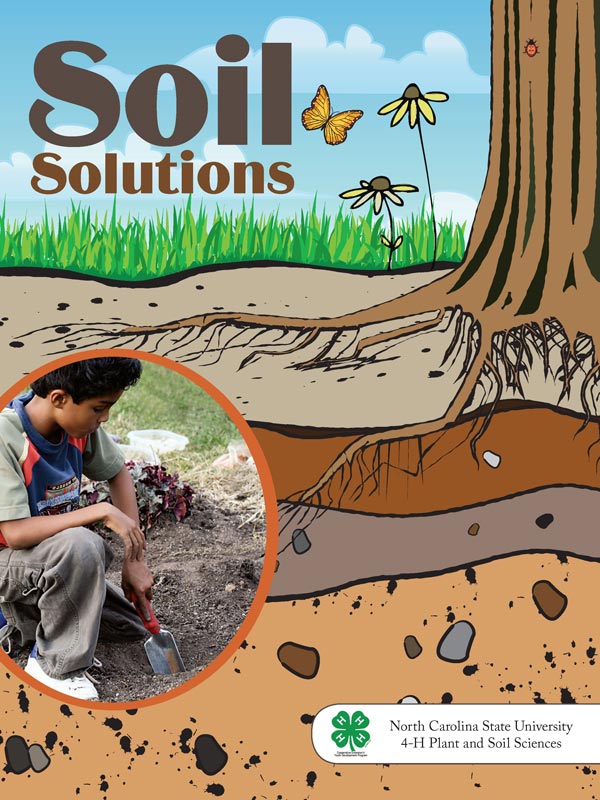Facilitator Information
Welcome to your main resource page for Soil Solutions.
The sidebar menu will take you to each lesson within this program.
Lesson plans include background information, materials lists, printable materials, and step-by-step instructions for implementing the lesson in a regular group setting if you are in a situation that allows you to do so. If you are in a virtual setting, you can modify the lesson by using some of the variations.
Summary
Soil Solutions brims with hands-on science lessons that utilize the local school landscape to connect students to the world of soils and plants in an inviting and relevant way. Students will discover the soil beneath their feet, watch as a basil seed germinates before their eyes, and nibble on nutritious and delicious salad greens they have grown themselves. Activities are structured to foster wonder and curiosity and encourage ways to turn student questions into investigations. The teacher’s role becomes one of a collaborator and a partner in inquiry with their students. Aligned to meet North Carolina’s third-grade science standard course of study in plants and soils, the curriculum draws from current research and knowledge in crops, horticulture, and soil sciences.
Each lesson includes background information for teachers, questions to focus on student thinking, and activities that emphasize observation and problem-solving. Using the 4-H Experiential Learning Model as a framework, the curriculum seeks to further life skills like communication, teamwork, critical thinking, and more, by engaging students to learn by doing, sharing their experience with each other, reflecting on their results, and generalizing and applying what they know to new situations.
Within each community across the state of North Carolina, there exists a local Cooperative Extension office that can provide content, youth development support, and resources to educators. The goal of Soil Solutions is to offer a contextual framework that enables students and teachers to dig deep and uncover the stories of soils and plants. Students will begin to hold a greater appreciation and respect for the natural world, gain confidence in their abilities to solve problems, and above all have a lifelong interest and enthusiasm for exploring and learning.

